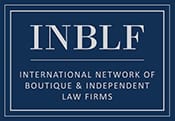When Peanuts Are Tea Leaves
March, 2013
Eric F. Greenberg | Attorney-at-Law
The notorious Salmonella outbreak in 2008-2009, in which Georgia-based Peanut Corporation of America was alleged to have supplied contaminated peanut products to makers of hundreds of food products, has finally resulted in criminal charges, as many observers had expected.
The events are in the defendants’ distant past, but they may have just had their past handed to them in the form of this grand jury indictment in federal court in Georgia.
This is just an indictment-an accusation-not a verdict, and it will take a trial or plea by defendants to resolve the facts fully. It’s of interest though for the story it alleges as well as for its symbolism as an example of FDA enforcement of food safety requirements.
The 76-count indictment accuses four individuals of introducing an adulterated and misbranded food into interstate commerce with intent to defraud or mislead, mail and wire fraud, and conspiracy. A separate prosecutor’s information, containing similar charges, was also disclosed against another individual, and he has already pled guilty to it. (You can expect him to be a witness against the other four.)
PCA’s peanut roasting facility produced granulated peanuts, peanut butter, and peanut paste, all of which were in turn used by PCA’s customers to make numerous food products. Thus, a contamination problem with PCA’s peanut products turned into potential contamination of numerous food products made by numerous companies large and small.
For those of us in the food and drug field, it’s been a long 4 years waiting to see what would happen here, as a lot of observers were wondering when individuals at the company would be prosecuted for the company’s actions, and what charges they would face.
Many of us were keeping an eye on whether FDA would reinvigorate its longstanding but little-used power to bring criminal prosecutions against individuals, not just companies, who have a share of the responsibility for violative products being on the market. It’s often referred to as the “Park” doctrine, a reference to a U.S. Supreme Court case that upheld the validity of prosecuting corporate leaders, even if they had no intent to violate the law or even knowledge of the violations. FDA has increased its enforcement activities in recent years and has even suggested informally that it might start using that Park power again.
Prosecutions under the Park doctrine have been rare, but nothing gets a corporate executive’s attention quite like being told they might go to jail if the company screws up, even accidentally.
One reason more Park-type prosecutions may not have been brought over the years is that they are a tough sale to juries: “We want you to put this individual in jail for the sins of his or her company, just because they were in charge. They did or didn’t do anything in particular, and there’s no evidence that they intended to defraud or fool the public or ignored obvious evidence of danger.”
Turns out the government didn’t rely on their power to prosecute corporate leaders who might not have intended to violate the law, as this indictment is chock full of allegations of intentional conduct, including conspiracy (which is when more than one person intentionally agrees to violate the law and acts to further the scheme). The PCA indictment tells a story that’s easily distinguishable from the conventional Park-type scenario. For one thing, it targets not just the most senior individual at the company, but several others as well. PCA’s former owner and president, a former sales representative, a former operations manager at the plant, and a quality assurance manager who also held other positions were indicted, as was another operations manager in the separate indictment.
The main indictment says the four defendants “knowingly and willfully” got together and devised a scheme to defraud and obtain money from others, by, among other things, shipping and causing to be shipped “peanut products before receiving the results of microbiological testing,” and after then getting results showing the products were positive for Salmonella, they failed to inform their customers; or shipping them after getting such results but not telling the customers; and falsifying certificates of analysis that showed the products were OK when they were not.
They are also alleged to have lied about whether Salmonella was found in their facility, and to have touted their quality and food safety record despite a range of unsanitary conditions, such as roof leaks, rodent and insect infestations, and inadequate validation of roasting conditions.
In short, this all sounds more like what the typical person thinks of as a criminal conspiracy, with agreements among people to make false statements and take fraudulent and misleading actions. It remains to be seen whether all of these charges will stick.
Also interesting will be to watch FDA’s enforcement approach going forward, now that there’s a renewed emphasis on food safety and industry has new obligations, and FDA has new powers, thanks to the FDA Food Safety Modernization Act of 2011. That Act makes more food companies undertake preventive controls programs, and increases FDA inspections of food facilities.
When confronted with what looks like old-fashioned fraud, FDA can be expected to seek charges like those in the PCA case. But what will it do when the story is less clear, and adulterated or misbranded foods make it to market but it’s not clear the company’s officials intentionally falsified documents and lied? Will it invoke the Park doctrine and criminally charge the individuals involved there, too, to send a strong message that they want all hands on deck toward compliance?
In the fine legal tradition of giving accurate but frustrating answers, I am compelled to say, “Maybe.” PW
Eric Greenberg can be reached at [email protected], and visit his firm’s Web site at www.ericfgreenbergpc.com.
This article is informational only and is not intended as, and should not be considered to be, legal advice.
Be sure to check for any updated information about the topics discussed in this article.


